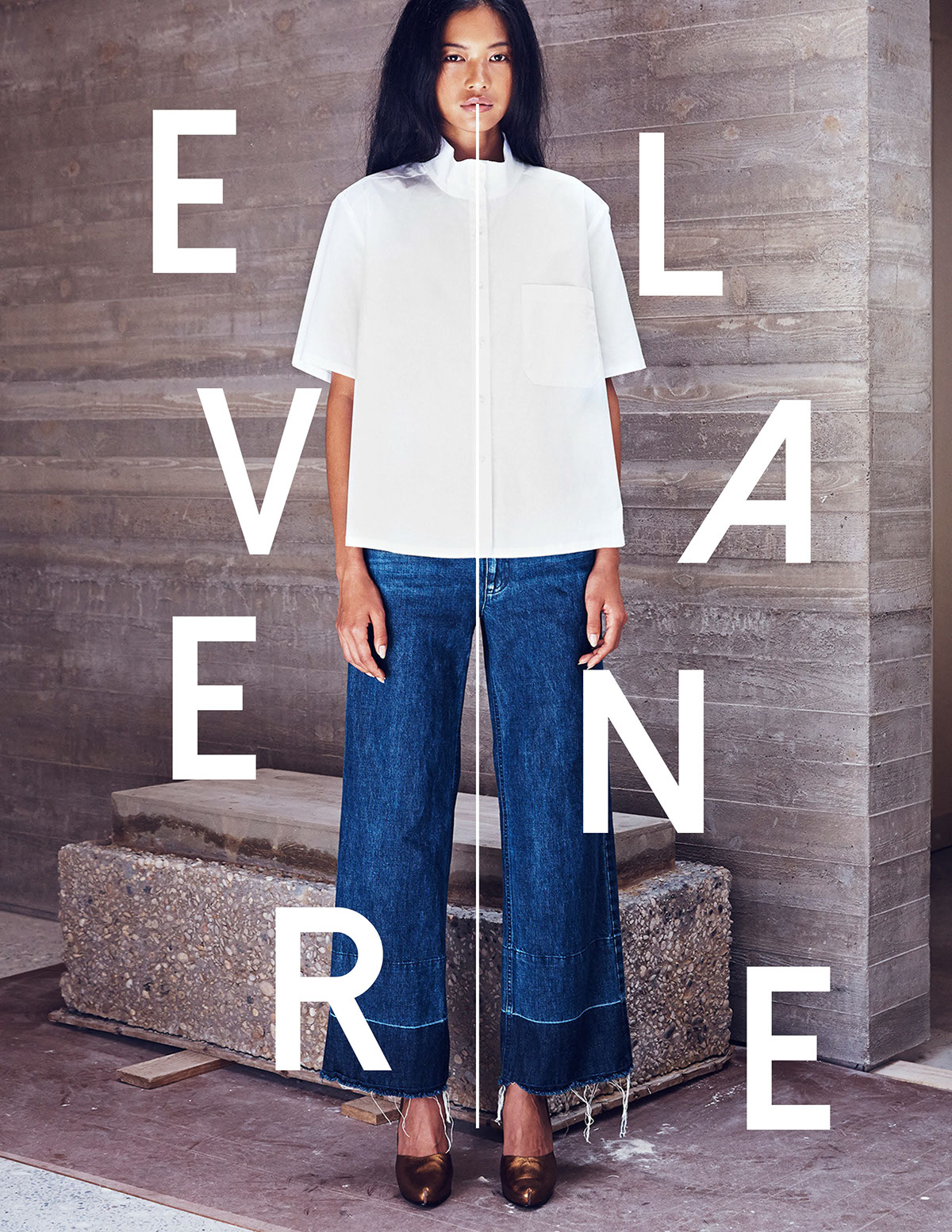Starting this week, I will be working towards becoming a media critic. Not of overall media, but of one specific topic. For a while I was going back and forth between what I should choose. What do I care about? What sorts of news am I already following on a daily basis that could be analyzed even more in depth? After a bit of soul searching, the answer became clear to me: sustainable fashion.
 “Capstone Project: Everlane” by Brynn McKinstry is licensed under CC BY-NC-ND 4.0
“Capstone Project: Everlane” by Brynn McKinstry is licensed under CC BY-NC-ND 4.0
Sustainable fashion is something I care deeply about. I try to shop either second hand or from brands I know have ethical production methods, and sustainable fashion is even a part of my job. I currently work for Buffalo Exchange, which is a resale store where people can come in to sell their used clothing instead of it ending up in landfills. Resale stores like these have been gaining popularity over the last few years, and it’s exciting to be in a place that encourages reusing clothing.
As much as I love fashion and clothing, the industry is one of the highest producers of waste.


It is a well known fact that the fashion industry is the world’s second largest polluter behind the oil industry and this article from EDGE fashion intelligence puts into perspective just what that means. By integrating sustainable fashion into your wardrobe, or by buying sustainably, you can help to reduce these numbers and minimize your carbon footprint. If we want to stop the deterioration of our planet through climate change and be able to enjoy fashion for years to come, something needs to happen. This is where sustainable fashion comes in.
But what exactly is sustainable fashion? While the term can mean different things to different people, I see it as clothing that is produced in the most ethical way possible with regards to both the environment and socio-economics. This could mean that the products are made out of recycled or organic materials, that they aren’t using excess water, that their dyes are safe for handling or not made out of harsh chemicals, or even that they ship their products in recyclable packaging. Every “sustainable” brand is different, but at least they are making an effort to take the environment into consideration. Another aspect of sustainable fashion is that the brand’s employees should be paid a living wage in safe working conditions, unlike many fast fashion or unsustainable brands who produce their garments in sweatshops.
Sustainable fashion sadly doesn’t see a lot of mainstream media coverage, and this to me is very frustrating. We see articles all the time about climate change and the innovative ways people are working to combat it, but rarely do these articles have to do with the sustainable fashion industry. If fashion is the world’s second leading polluter, you would think the industry warrants more coverage from big name media outlets like CNN, BBC, The New York Times or The Washington Post. Typically when I do see articles about sustainable fashion, it’s from outlets that focus on fashion, like Vogue or Just-Style. Occasionally I do also see a good article from Forbes, but this makes sense since they’re focusing on business and fashion is a big one.
While I am glad to see sustainable fashion is being covered somewhere, it would be nice to see it on a platform with a wider range of audiences.
Typically, if I am looking for information about sustainable fashion, I’ll go to a platform that specializes on the topic. My favorites to check regularly are WTVOX, Global Fashion Agenda and EDGE: Fashion Intelligence. Both of these platforms solely post about the happenings of sustainable fashion, and often provide smaller stories that wouldn’t have gotten picked up by larger platforms such as Vogue. The downside to this is that the content is definitely more biased. They aren’t typically giving both sides of the story, or reporting on any fast fashion news, which can still relate to sustainability. They very clearly have an agenda to promote sustainable fashion, and sometimes even write whole articles about their own work in the field, but those are the articles that I am more skeptical of. Overall, I think it’s important that someone is reporting the happenings in the sustainable fashion field, even if is from organizations that are in the field as well.